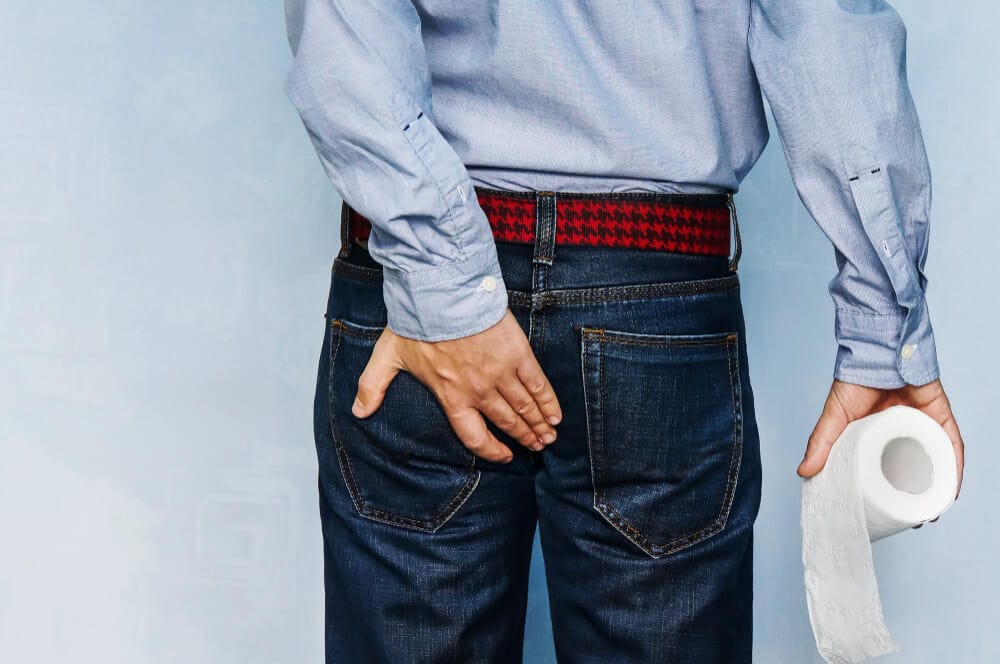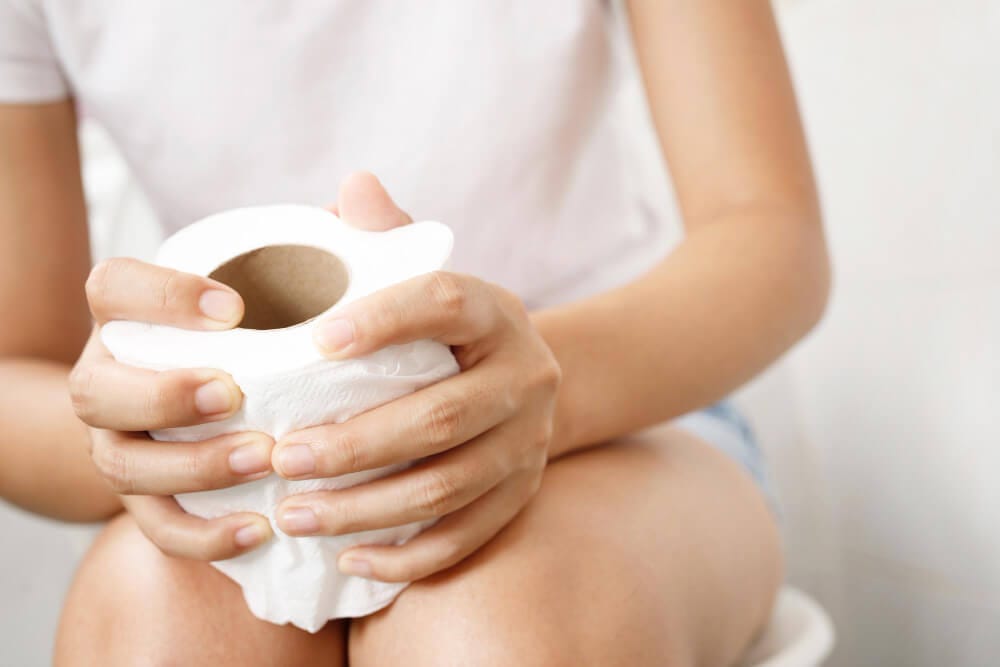During the holy month of Ramadan, you may experience various health challenges that can affect your fasting and overall well-being. One such concern that might catch you off guard is anal bleeding. And it will seriously trouble your spiritual journey in this holy month if you have Ramadan and anal bleeding at the same time.
It’s crucial to understand the potential causes behind this symptom, ranging from minor issues like hemorrhoids to more serious conditions. Knowing when it’s time to consult a doctor is essential for maintaining your health during Ramadan.
My guide aims to equip you with the necessary knowledge about anal bleeding, helping you make informed decisions regarding your healthcare needs.
Ramadan And Anal Bleeding: Quick Diagnosis And Cure
- Rectal bleeding during Ramadan can arise from various causes, including hemorrhoids, fissures, or more serious gastrointestinal issues, and understanding these can help in identifying the need for medical consultation.
- Fasting can impact gastrointestinal health by altering eating patterns and potentially exacerbating pre-existing conditions, highlighting the importance of moderation and balanced diet.
- Recognizing symptoms such as prolonged or severe anal bleeding, accompanied by other signs like weight loss or severe pain, is crucial and warrants immediate medical attention.
- Seeking medical advice at the onset of anal bleeding ensures proper diagnosis, screening, and access to appropriate treatment options, preventing complications.
- Implementing dietary changes, staying hydrated, and following recommendations for gentle physical activity can manage and prevent anal bleeding during Ramadan.
- Patients with significant gastrointestinal issues may be exempt from fasting; consulting with a healthcare provider can provide guidance on safe practices during Ramadan.

Rectal Bleeding During Ramadan: Key Points To Understand
Common Misconceptions
Many people think fasting causes rectal bleeding. This is not true. Fasting in itself does not cause this condition.
Rectal bleeding during Ramadan often stems from other factors, not the act of fasting. It’s crucial to separate myth from fact.
Diet Changes
Changing your diet during Ramadan can affect bowel movements. Eating less fiber may lead to constipation.
Constipation can cause hemorrhoids, leading to rectal bleeding. Adding more fruits and vegetables to your Suhoor and Iftar meals can help prevent this issue.
Drinking enough water is also essential for preventing constipation during Ramadan. Aim for 8 glasses between Iftar and Suhoor.
Hydration Effects
Dehydration can worsen constipation, increasing the risk of rectal bleeding.
To avoid dehydration, drink plenty of fluids between sunset and sunrise. Avoid caffeinated drinks as they may increase urine output and lead to dehydration.
Ignoring Symptoms
Ignoring signs of rectal bleeding is a mistake. Rectal bleeding could indicate something more serious than hemorrhoids or fissures.
If you notice blood in your stool or on toilet paper, consult a doctor immediately. Early detection makes treatment easier and more effective.
Causes of Anal Bleeding During Fasting
Dehydration Effects
Dehydration is a key player. It leads to hard stools and, consequently, anal fissures. When you fast, your body gets less water than usual. This lack of hydration makes your stools hard and difficult to pass.
Hard stools can tear the lining around your anus. These tears are known as anal fissures. They often cause minor bleeding during bowel movements.
Prayer Postures
Prolonged sitting or standing during prayer can worsen hemorrhoids. Hemorrhoids are swollen veins in your lower rectum and anus.
They’re common but uncomfortable. Standing or sitting for long periods puts pressure on these veins. This pressure exacerbates hemorrhoids, leading to bleeding.
Dietary Changes
Changes in diet can cause constipation or diarrhea. Here are the things you need to understand to better manage it:
- Eating less fiber leads to constipation.
- Overeating at Iftar might result in diarrhea.
- Both conditions strain your digestive system and may contribute to anal bleeding.
- Increase fiber intake slowly.
- Drink plenty of water after Iftar until Suhur.
- Avoid overeating when breaking fast.
These steps help maintain regular bowel movements and prevent complications like anal bleeding.
Impact of Fasting on Gastrointestinal Health
Digestive Changes
Fasting during Ramadan changes how your digestive system works. Your stomach and small intestine adapt to the long hours without food or drink. This can lead to a slower metabolism.
Initially, you might feel discomfort or experience common issues like heartburn or constipation. These symptoms usually occur because your body is adjusting to the new eating schedule. Over time, most people find that their system adapts.
Gut Health Benefits
Properly managed fasting has benefits for gut health. It gives your digestive tract time to rest and recover, potentially improving its function.
A fit result from Ramadan fasting includes better regulation of blood sugar levels and improved digestion when you break your fast correctly with balanced meals. Remember, hydration is key during non-fasting hours for optimal gut health.
Common Issues
During Ramadan, some of you may face gastrointestinal problems such as indigestion or anal bleeding mentioned in the previous section. These issues often stem from overeating during iftar or suhoor meals or consuming highly processed foods. To minimize these problems:
- Eat slowly and chew thoroughly.
- Include fiber-rich foods in your diet.
- Stay hydrated by drinking plenty of water between iftar and suhoor.
If symptoms persist or worsen, consulting a doctor is essential to rule out any serious conditions related to fasting and gastrointestinal health.

Common Symptoms of Anal Bleeding
Minor Signs
You might notice small amounts of blood on toilet paper or in the bowl. This can be alarming but often isn’t a sign of a serious problem.
Bright red blood usually indicates hemorrhoids or minor tears (fissures) near your anus. These conditions may worsen during Ramadan due to changes in diet and hydration levels. It’s important, however, not to immediately jump to conclusions without observing other symptoms.
Serious Conditions
If you see dark red or black stools, it’s time for concern. This color change could signal bleeding higher up in your gastrointestinal tract.
Consistent bleeding over several days is another red flag. Coupled with changes in bowel habits, weight loss, or severe pain, these symptoms require medical attention. Don’t wait for these signs to resolve on their own.
In fasting periods like Ramadan, dehydration can exacerbate existing gastrointestinal issues leading to more severe anal bleeding cases than usual. Monitoring stool color and consistency helps identify problems early.
Tracking Changes
You need to keep tracking your bodily changes to identify any rectum-related issues. And to do that:
- Keep an eye on the frequency of bleeding.
- Note the volume: spotting versus substantial blood loss.
These factors help gauge whether what you’re experiencing is within normal limits or if it signals something more serious requiring doctor consultation.
Diagnosis Options For Anal Bleeding
Diagnostic Tools
Doctors use non-invasive tools to find out why you’re bleeding. They might start with a physical exam. This means looking at the outside of your body. Then, they could use an anoscope. It’s a small tube that lets them see inside.
Blood tests are common too. These tests can tell doctors about possible causes of your problems. Sometimes, imaging tests like MRI or CT scans are needed. They give detailed pictures of what’s going on inside.
Screening Processes
Screening is crucial for spotting diseases early. For colorectal cancer, screening might involve a colonoscopy every ten years starting at age 45.
Your doctor will consider your health history before recommending screenings. This ensures they catch any issues early when treatment is most effective.

Seeking Medical Attention for Anal Bleeding
Consult Healthcare
If you notice persistent or severe symptoms of anal bleeding, it’s crucial to consult a healthcare provider. Ignoring these signs can lead to complications. Bleeding might indicate conditions like ulcerative colitis, which requires medical intervention.
A visit to the doctor is necessary if blood loss becomes noticeable on toilet paper or in the toilet. Do not wait too long. Early diagnosis can prevent more serious issues in your large intestine.
Symptom Diary
Before visiting a doctor, prepare a detailed symptom diary. Note down when bleeding occurs and its severity. Also, record any additional symptoms you experience. This information will help your healthcare provider diagnose the issue more accurately.
Include details such as changes in bowel habits and any visible blood clots or color changes in the blood observed.
Common Misconceptions
Some of you may worry that seeking medical help could break your fast during Ramadan. It’s important to clarify this misconception with facts:
- Consulting with a nurse or doctor does not break your fast.
- Non-invasive examinations are permissible and do not affect fasting status.
- Your health should always come first; Islam allows exceptions for those unwell.
Common Treatment Options For Anal Bleeding
Treatment depends on what’s causing the bleeding. For minor issues, changes in diet or lifestyle might help. Eating more fiber and drinking plenty of water can reduce strain during bowel movements.
If these don’t work, medication may be necessary. For serious cases, surgery could be the best option. Remember to follow your doctor’s advice closely for the best results.
Managing and Preventing Anal Bleeding During Ramadan
Hydration and Fiber
Staying hydrated during Ramadan is crucial. You might find this challenging due to the fasting hours. However, consuming plenty of water between Iftar (evening meal) and Suhoor (pre-dawn meal) can help. Aim for at least 8 glasses of water within this timeframe.
Eating foods high in fiber is also beneficial. Include fruits, vegetables, whole grains, and legumes in your meals. These not only provide essential nutrients but also help prevent constipation.
Gentle Exercise
Regular exercise improves bowel movements. Opt for gentle activities such as walking or stretching during non-fasting hours. Avoid strenuous workouts that could lead to dehydration.
A short walk after Iftar can aid digestion and enhance blood circulation. This contributes to overall well-being during Ramadan.
Over-the-Counter Remedies
Use over-the-counter remedies with caution. Consult a healthcare professional before taking any medication for anal bleeding or discomfort. They can recommend safe options that won’t interfere with your fasting. Remember:
- Not all medications are suitable while fasting.
- Some may require consumption during specific times.
Final Note From Dr. Rajarshi Mitra
Understanding the nuances of anal bleeding during Ramadan is crucial for maintaining your gastrointestinal health while observing fasts. This article has explored the potential causes, the impact of fasting on your digestive system, and when it’s necessary to seek medical advice. You’ve learned about recognizing alarming symptoms, the importance of timely medical intervention, and strategies for managing and preventing discomfort.
We’ve highlighted that certain health conditions may exempt individuals from fasting, emphasizing the need for personal health assessments and consultations with healthcare professionals.
As you navigate through Ramadan, prioritize your health by staying informed and vigilant about any unusual symptoms. Should you experience anal bleeding, don’t hesitate to consult a doctor to ensure it’s properly addressed.
Remember, your well-being is paramount; observing religious practices should not come at the expense of your health. Let this guide serve as a resource for a healthier fasting experience. Take action towards safeguarding your health today.
FAQs
Can fasting during Ramadan cause anal bleeding?
Fasting itself does not directly cause anal bleeding. However, changes in diet and hydration status during Ramadan can exacerbate existing gastrointestinal issues, potentially leading to symptoms like rectal bleeding.
What are common causes of anal bleeding during Ramadan?
Common causes include hemorrhoids, anal fissures, and constipation. The latter is often due to reduced fluid intake and dietary changes.
How does fasting impact gastrointestinal health?
Fasting can alter your digestive system’s routine, possibly leading to constipation or exacerbating existing gastrointestinal conditions. However, it’s crucial to differentiate between minor discomfort and symptoms indicating a more serious condition.
How do doctors diagnose the cause of anal bleeding?
Diagnosis might involve a physical examination, discussing your medical history and symptoms, and possibly conducting tests such as blood work or imaging studies to determine the underlying cause accurately.
Are there ways to manage or prevent anal bleeding while fasting?
Staying well-hydrated after sunset hours, maintaining a balanced diet rich in fiber when breaking the fast, and avoiding straining during bowel movements can help manage and prevent symptoms.

















